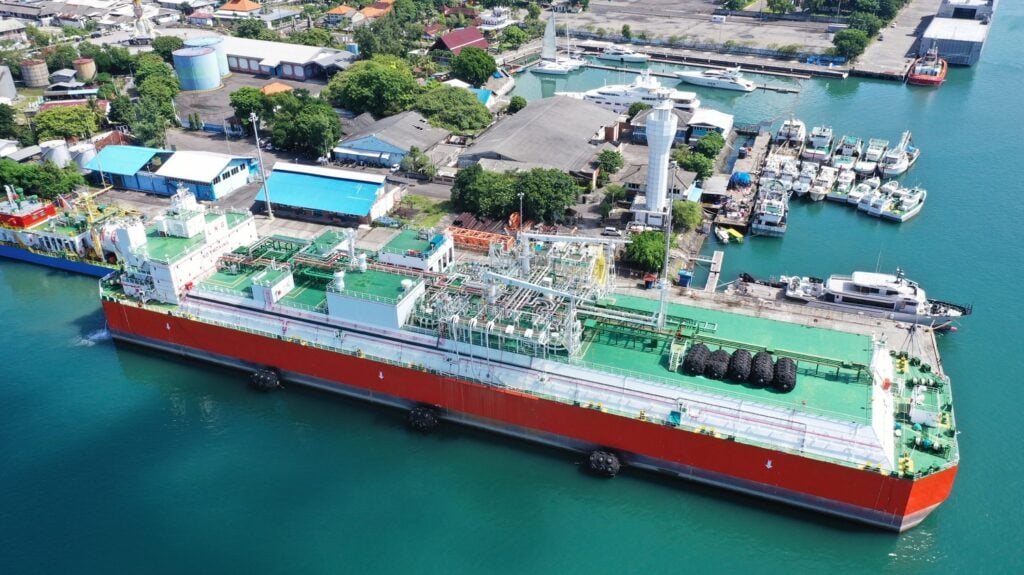
Archive / Courtesy of Deutsche ReGas
The German Environmental Aid (Deutsche Umwelthilfe – DUH) has objected to the construction of a pipeline to connect the planned LNG terminal off Rügen in Germany and asked the responsible Stralsund Mining Authority to refuse the permit.
According to DUH, the terminal, with a capacity of up to 38 billion cubic metres of gas per year, is to be connected to the gas network in Lubmin with a 38-kilometre offshore pipeline through the ecologically highly sensitive Bay of Greifswald.
DUH warned that the construction of the pipeline, for which energy giant RWE submitted the application, would be a huge threat to tourism on Rügen, for the Greifswalder Bodden, the Baltic Sea, and the surrounding protected areas. It noted that this particularly applies to the ecological function of the Greifswalder Bodden.
In addition, DUH said that the climate impacts of the project were not assessed and there are serious procedural errors such as the omission of an environmental impact assessment.
It stated that RWE’s application documents not only lack an assessment of the impact on the climate, but also a comprehensible energy justification for the project.
“Just last week, a study by the Energy Economics Institute (EWI) at the University of Cologne and a report by the federal government made it clear that the planned LNG projects would mean considerable overcapacity. This applies in particular to the planned terminal off Rügen and its gigantic connection pipeline. The LNG terminal off Rügen is also not yet listed in the LNG Acceleration Act. Nevertheless, the Stralsund Mining Authority is already applying the LNG Acceleration Act to the planning,” DUH said.
Sascha Müller-Kraenner, Federal Managing Director of the DUH, commented: “With the planned pipeline through the Greifswalder Bodden, Mecklenburg-Western Pomerania is in danger of destroying its ecological silverware. The entire project would be a disaster for biodiversity… Nature conservation and tourism, which are important in Rügen, are simply ignored.”
“The Baltic Sea and the affected protected areas are already in a bad state – the project would mean the final industrialisation of this sensitive natural area. In view of the devastating consequences, this project must not be approved. We will exhaust all legal means available to us to protect the Baltic Sea and the Greifswalder Bodden against this madness.”
Constantin Zerger, Head of Energy and Climate Protection at DUH, added: “The action of the Stralsund Mining Authority is highly dubious from the point of view of the rule of law. Both the state government and the Federal Ministry of Economics have admitted that the LNG Acceleration Act must first be amended for the project.”
“Nevertheless, a simplified and accelerated procedure is already being used with reference to the law. Here the red carpet is once again being rolled out for a gas pipeline. It has long been clear that there is no need for this mega project. A gas shortage has been averted for this winter, this would give enough time to tackle the project in a regular procedure and with appropriate participation deadlines.”